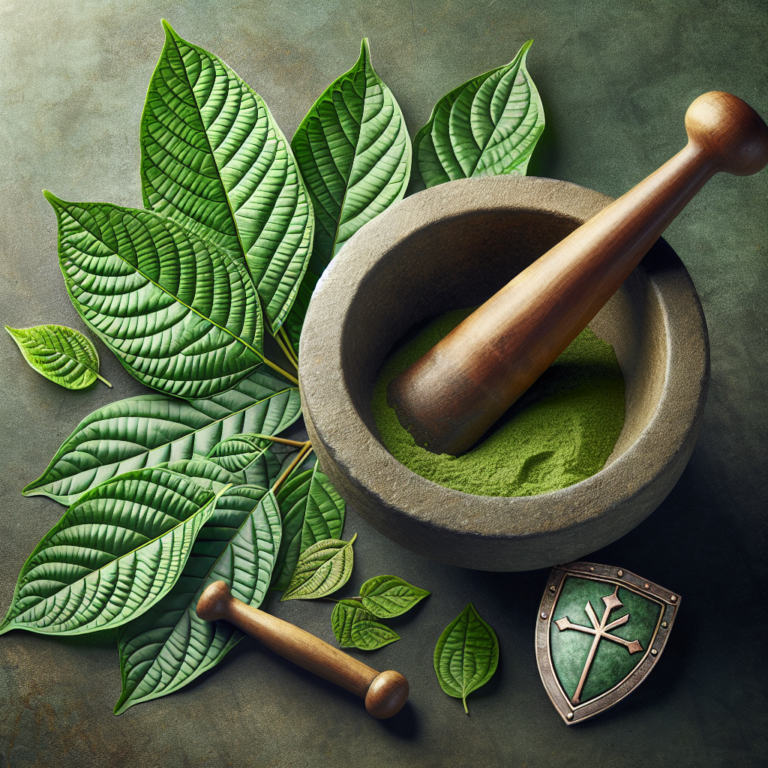
Understanding Kratom: What You Should Know
Kratom comes from the leaves of the Mitragyna speciosa tree. This tropical tree thrives in Southeast Asia, primarily in countries like Thailand, Malaysia, and Indonesia. Traditionally, locals have used kratom for its various properties. Some seek it for stimulating effects, while others want pain relief or relaxation.
The leaves contain compounds that interact with the brain’s opioid receptors. This interaction can lead to both stimulant and sedative effects, depending on the dosage. Users report varying experiences, from increased energy and focus to relaxation and euphoria. However, the wide range of effects makes it essential to approach kratom cautiously.
In recent years, kratom has gained popularity in Western countries. Many people consider it a natural alternative for pain management or mood enhancement. However, with growing interest comes a need for understanding its safe usage. One common question arises: Can kratom be taken with lemon juice?
The Relationship Between Kratom and Lemon Juice
Lemon juice is a staple in kitchens around the world. It adds flavor to dishes and beverages, and it’s packed with vitamin C. But how does it interact with substances like kratom?
Many users mix kratom with lemon juice for two main reasons. First, lemon juice can mask the strong, earthy taste of kratom. Second, some believe that the high acidity of lemon juice may enhance the effects of kratom. But is there any scientific backing to this?
The Science Behind Kratom and Acidic Juices
A pivotal aspect to explore is how acidic substances interact with kratom. Scientific studies on this specific combination are limited, but some theories exist. The idea goes like this: acidic environments can sometimes help in the extraction of active compounds.
Kratom’s crucial components are mitragynine and 7-hydroxymitragynine. These alkaloids are responsible for the majority of its effects. When exposed to acidity, like that from lemon juice, there’s potential for better alkaloid bioavailability. This means your body might absorb these compounds more efficiently.
However, while the theory seems plausible, individual experiences differ greatly. Hence, it’s vital to proceed with caution.
Potential Benefits of Mixing Kratom and Lemon Juice
Many users assert that mixing lemon juice with kratom offers several potential benefits. Though scientific validation is lacking, anecdotal evidence speaks volumes. Here are some of the main reasons why people enjoy this combo.
Enhanced Flavor
Kratom has a strong, bitter taste that some users find unpalatable. Adding lemon juice can make the experience more enjoyable. The citrus flavor often masks the bitterness, turning the consumption into a more pleasant ritual.
Improved Effects
Some users believe that lemon juice amplifies the effects of kratom. The acidic environment may aid in the absorption of alkaloids. Users report feeling more energized or relaxed when consuming this combination. While results vary, many swear by its efficacy.
Routine and Ritual
Creating a kratom and lemon juice mix can become a part of a daily routine. Many people find comfort in rituals. Combining the two might make users more likely to stick with their kratom regimen, ensuring they receive its intended benefits.
Risks and Precautions
Despite the reported benefits, it’s crucial to consider potential risks associated with combining kratom and lemon juice. Here are some important factors to keep in mind.
Gastrointestinal Issues
Both kratom and lemon juice can irritate the gastrointestinal (GI) tract. Combining them might worsen these effects. Users often report nausea or stomach discomfort. If you have a sensitive stomach, it’s wise to approach this combination cautiously.
Potential for Overconsumption
The effects of kratom can vary significantly based on dosage. Adding lemon juice might enhance these effects, leading to higher consumption. It’s essential to monitor your intake. Start with a smaller dose and observe how your body reacts.
Legal and Safety Considerations
Before trying kratom, check your local laws. In some places, it is regulated or banned. Ensure you purchase from reputable sources. Always opt for quality products to avoid contaminants.
How to Properly Mix Kratom and Lemon Juice
If you decide to mix kratom with lemon juice, here’s a simple guide to follow. This method aims to maximize flavor while minimizing potential side effects.
Ingredients Needed
- Kratom Powder: Choose a high-quality strain that suits your needs.
- Fresh Lemon Juice: Freshly squeezed is always best.
- Water: Provides dilution and helps with absorption.
Steps to Follow
- Measure Your Kratom: Start with a small dose. A teaspoon or two is typical for beginners.
- Mix with Water: Combine kratom powder and a half-cup of water in a blender or shaker. Blend until well-mixed.
- Add Lemon Juice: Squeeze fresh lemon into the mix. Start with the juice of half a lemon.
- Stir Well: Mix thoroughly to blend the flavors and ensure even distribution of kratom.
- Taste Test: Before consuming the entire mix, taste a small amount. Adjust the lemon juice as needed to suit your preferences.
Frequently Asked Questions (FAQs)
1. Can I mix kratom with any other citrus juice?
Yes, other citrus juices like lime or orange could work similarly to lemon juice. Just keep in mind that flavor and effects may vary.
2. How often can I take kratom with lemon juice?
Frequency depends on individual tolerance. Some users take it daily, while others prefer occasional use. Always pay attention to how your body reacts.
3. Will mixing kratom with lemon juice get me high?
Kratom can produce stimulating or sedative effects. The intensity often varies based on the strain and dosage. Lemon juice generally does not cause intoxication itself.
4. Is there a specific time when it’s best to take kratom with lemon juice?
Timing depends on your goals. Many users prefer morning intake for energy, while others opt for evening use for relaxation.
5. Can I add sweeteners to my kratom and lemon juice mix?
Absolutely! Honey or agave syrup can enhance taste. Just be cautious with additional sugar, as this may affect your results.
6. What should I do if I experience nausea after taking kratom with lemon juice?
If nausea occurs, try reducing your dose. Also, consider taking it with food or drink, as this can help mitigate stomach discomfort.
7. How should I store leftover kratom and lemon juice mix?
Keep any leftover mix in a sealed container in the refrigerator. Consume it within 24 hours to maintain freshness.
8. Are there any known interactions between kratom and medications?
Yes, kratom can interact with various medications. Always consult a healthcare professional before combining any substance with medication.
9. Should I avoid kratom if I have a pre-existing condition?
If you have health concerns, particularly related to the liver or heart, consult a healthcare provider before trying kratom.
10. Can kratom and lemon juice affect my hydration levels?
Kratom can have dehydrating effects. Be sure to drink plenty of water throughout the day to stay hydrated, especially if consuming kratom.
Conclusion
Combining kratom with lemon juice is a trend that many users explore. While it might enhance flavor and potentially affect the efficacy of kratom, individual experiences will vary significantly. Proceed with caution and listen to your body. Remember, safe practices and an informed approach can optimize your kratom experience.





